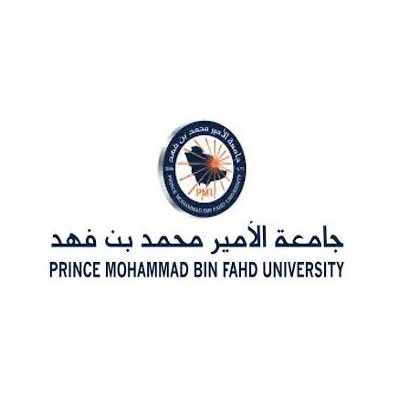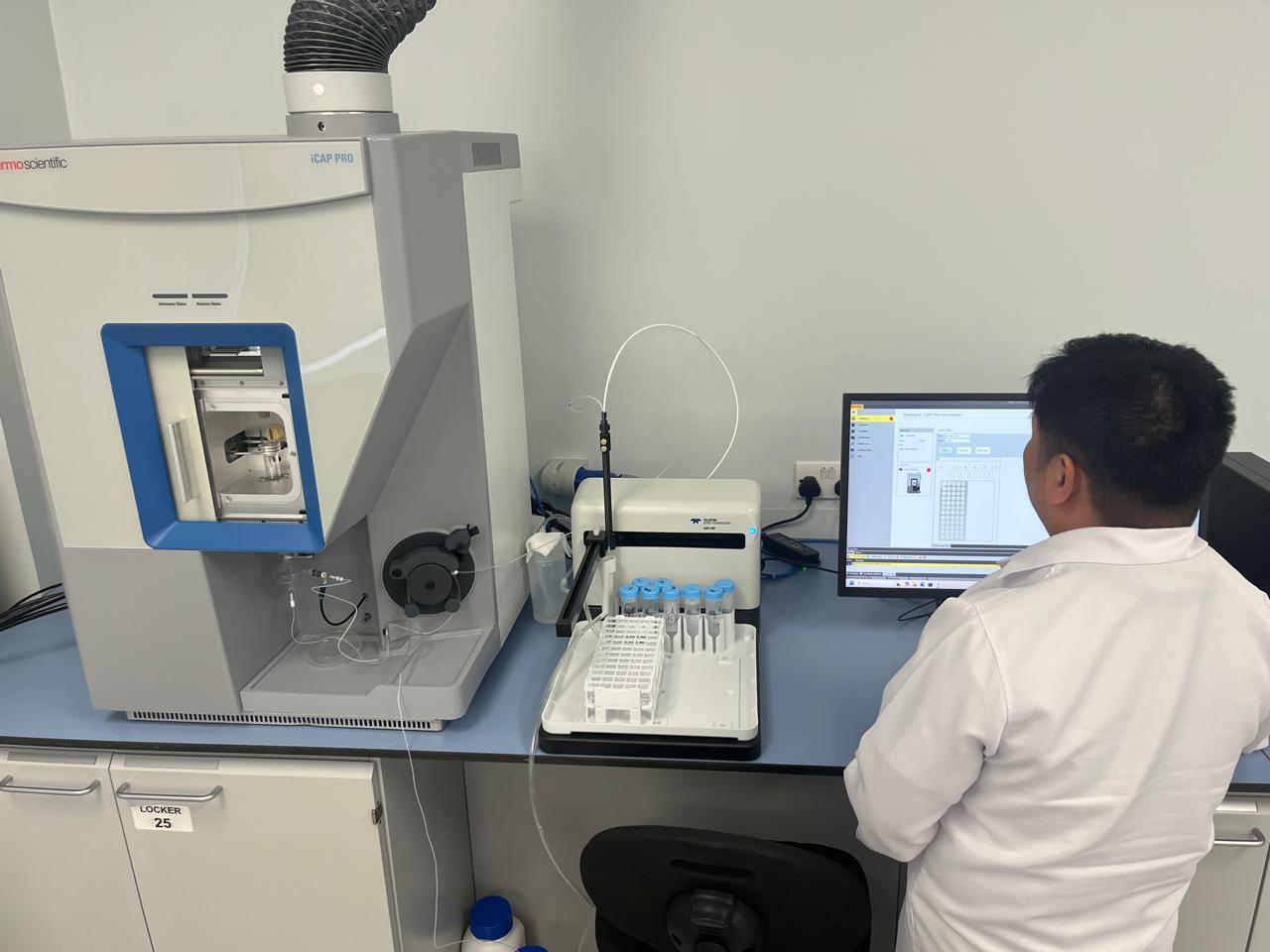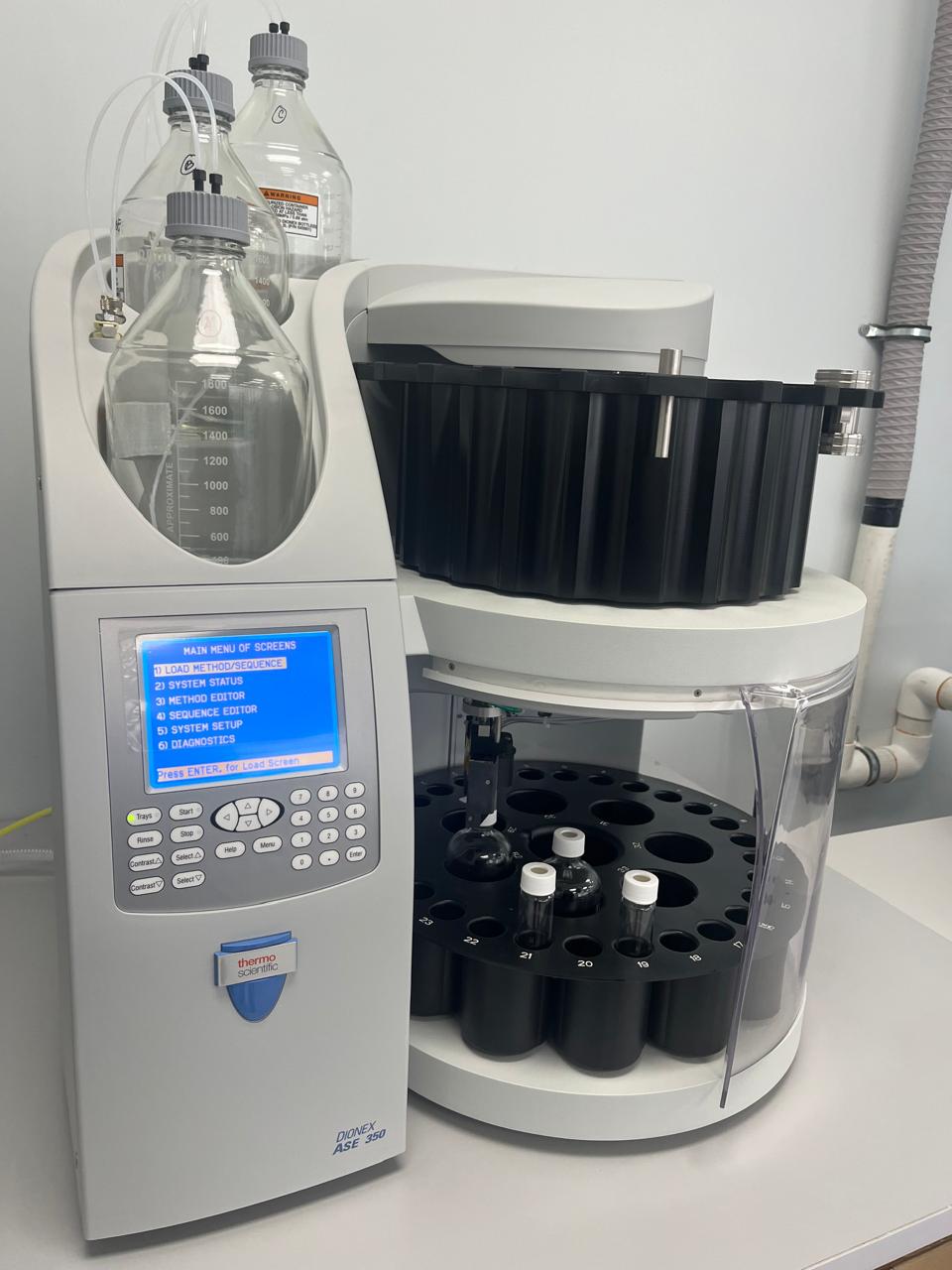Food Analysis and Green Synthesis Innovation in Analytical Research Laboratory at PMU

Sponsored by

The Analytical Chemistry Research Laboratory at PMU is a beacon of scientific excellence, driving transformative research at the intersection of food science and green chemistry. This advanced research hub is renowned for its pioneering work in food analysis, sustainable synthesis, and innovative solutions to some of the most pressing global challenges in health, nutrition, and pharmaceuticals.

The lab is equipped with state-of-the-art instrumentation for comprehensive analysis of food products, ensuring safety, quality, and compliance with international standards. The analytical laboratory at Prince Mohammad Bin Fahd University is at the forefront of tackling pressing issues related to heavy metal contamination and mycotoxin-producing fungi in various food items including coffee and spices consumed in Saudi Arabia. These food safety concerns are critical, as they directly impact public health and the quality of widely consumed dietary staples.

Coffee, a cornerstone of Saudi culture, can be susceptible to heavy metal contamination through various stages, including cultivation, processing, and storage. A detailed analysis of Coffee and Spices had been assessed in the latest research work led by Professor Amin to monitor and mitigate these risks. Heavy metals have been detected (lead, cadmium, arsenic, mercury) in coffee samples within varying concentration ranges, with some exceeding safety limits.
In another similar research project heavy metals (lead, cadmium, nickel, copper) in spices, with notable contamination in imported turmeric and chili powder have been found. Isolated mycotoxin-producing fungi (Aspergillus flavus, Fusarium), with detectable levels of aflatoxins and fumonisins were also present in several samples. These findings highlight significant contamination risks in Saudi Arabia's coffee and spice supply chain, underscoring the need for stricter quality controls. Studies highlight that prolonged exposure to heavy metals through coffee consumption can lead to adverse health effects, including neurological, renal, and cardiovascular issues. Recommendations are provided for minimizing contamination during the supply chain.

At the heart of this laboratory is its commitment to green chemistry, where innovative catalysts and environmentally friendly processes are used to synthesize high-value molecules. These sustainable approaches minimize waste, reduce energy consumption, and eliminate the use of hazardous reagents.
Revolutionary Molecules Synthesized at the Lab
- Naphthopyranopyrimidines:
Synthesized using eco-friendly catalysts, these versatile molecules are foundational in developing cutting-edge antibiotics and therapeutic agents. Known for their biological activity, these compounds are being explored for applications in antibacterial, antifungal, and antiviral treatments.
- N-Substituted Pyrroles and Their Derivatives:
These are crucial intermediates in the pharmaceutical industry, forming the backbone of many anti-inflammatory and antimicrobial drugs. The lab’s patented green synthesis methods for these pyrrole derivatives significantly enhance the efficiency of production while reducing the environmental footprint.
The laboratory has secured US patents for its groundbreaking methods in green synthesis, cementing its reputation as a trailblazer in sustainable pharmaceutical chemistry. These innovations are not just eco-friendly but also scalable, opening pathways for industrial adoption and fostering collaborations with global pharmaceutical leaders. The laboratory embodies the innovative spirit of Prince Mohammad Bin Fahd University, striving to make meaningful contributions to science and sustainability. With its focus on cutting-edge food analysis and environmentally friendly chemical synthesis, the lab is positioned to:
- Drive advancements in global food safety.
- Enable breakthroughs in green pharmaceutical research.
- Inspire the next generation of scientists and innovators.

This laboratory is not only solving today’s challenges but also shaping the sustainable technologies of tomorrow, reinforcing PMU’s role as a global leader in transformative research. The laboratory stands as a testament to how science can merge with sustainability to create impactful solutions that benefit humanity and the planet. It invites collaborators, students, and industry leaders to join its mission of innovation for a better, greener future.